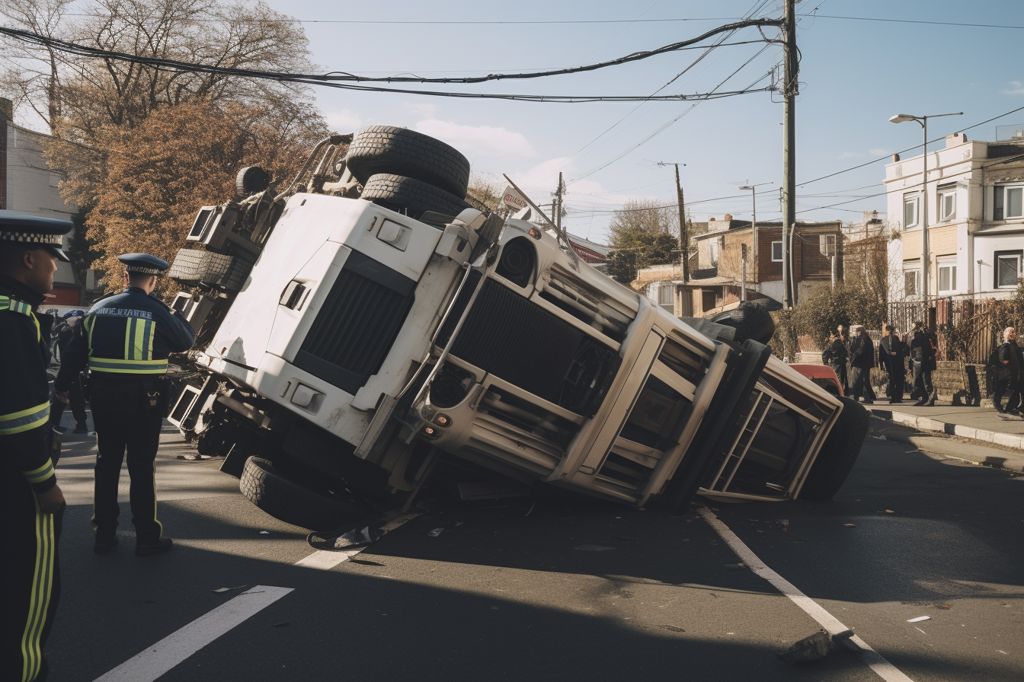The Economic Freedom Fighters (EFF) recently organized a protest in Cape Town to show the connection between the struggles faced by taxi operators and the wider fight for land and economic fairness. The protest caused disruptions on the N2 Northbound and emphasized the EFF’s dedication to achieving a more equal society. The EFF’s approach highlights the necessity for systemic change to address underlying inequalities and calls for solidarity and collective action in the face of structural inequalities.
The EFF’s Unifying Protest
In an extraordinary show of unity, the Economic Freedom Fighters (EFF) recently organized a protest in Cape Town, South Africa, demonstrating the connection between the current challenges faced by taxi operators and the wider struggle for land and economic fairness. The event, which happened on October 2, 2023, caused disruptions on the N2 Northbound on Jakes Gerwel, leading to lane closures and delays. Despite the inconvenience, the protest emphasized the interconnected nature of seemingly unrelated struggles and reinforced the EFF’s dedication to achieving a more equal society.
The impetus for the protest was the City of Cape Town’s decision to confiscate numerous taxis in August, an action that the EFF condemned as unjust. The political party’s provincial chair, Unathi Ntame, stressed that the protest would be peaceful and centered around a straightforward yet potent message: “Taxi struggles are people’s struggles, and people’s struggles are land struggles.”
This motto encapsulates the EFF’s outlook on the taxi issue. They believe that the problems faced by taxi operators are indicative of broader socio-economic disparities that can be linked back to South Africa’s history of land dispossession. By associating the taxi struggles with the more extensive struggle for land and economic justice, the EFF aims to reshape the narrative and form a united front against the forces perpetuating these injustices.
The Taxi Industry and its Structural Challenges
The EFF’s protest provides a striking example of how seemingly routine matters like taxi regulations can possess deeper socio-political meaning. The taxi industry, primarily owned and operated by black South Africans, has long been both a source of pride and frustration for many in the community. On one hand, it showcases the entrepreneurial spirit and resilience of the black community, which has developed a thriving industry despite enduring systemic discrimination and marginalization. On the other hand, the industry has experienced numerous challenges, from inadequate infrastructure and regulatory obstacles to violence and crime.
By situating the taxi struggles within the broader context of the struggle for land and economic fairness, the EFF is bringing attention to the structural factors underlying these challenges. This approach not only reveals the historical roots of the taxi industry’s difficulties but also highlights the necessity for systemic change to address the underlying inequalities.
In this sense, the EFF’s protest is reminiscent of historical artistic movements that sought to uncover the deeper socio-political dimensions of seemingly ordinary issues. For instance, the Dadaists of the early 20th century utilized their provocative art to question the logic and values of the dominant bourgeois order, while the Situationists in the 1960s employed techniques like détournement to subvert the pervasive spectacle of consumer capitalism.
Like these artistic movements, the EFF’s protest serves as a reminder that seemingly inconsequential matters can often be traced back to larger systemic issues. By connecting the taxi struggles with the wider struggle for land and economic justice, the EFF is seeking to mobilize the public in support of a more equitable and just society.
Practical Implications and the Call for Unity
Beyond its symbolic significance, the protest also has practical consequences for the taxi industry. The confiscated taxis represent a substantial loss of income for the affected operators and their families, exacerbating the economic vulnerability that many black South Africans already experience. As such, the EFF’s demand for the release of the impounded taxis can be seen as both an act of solidarity with the taxi operators and a concrete step towards addressing the economic inequalities that afflict South African society.
The EFF’s protest in Cape Town is not an isolated incident; it is part of a broader pattern of activism that aims to highlight the interconnected nature of various struggles. In doing so, the EFF is drawing from a long tradition of radical politics that emphasizes the importance of solidarity and collective action in the face of seemingly insurmountable challenges.
As the protest unfolded on the streets of Cape Town, it served as a powerful reminder that the journey to a more equitable society necessitates the acknowledgement and confrontation of the deeply ingrained structural inequalities that permeate every aspect of life. By uniting the struggles of taxi operators with the larger fight for land and economic justice, the EFF is not only advocating for the release of impounded taxis but also for a more inclusive and equitable future for all South Africans.
1. What was the reason behind the EFF’s recent protest in Cape Town?
The protest organized by the Economic Freedom Fighters (EFF) was to demonstrate the connection between the struggles faced by taxi operators and the wider fight for land and economic fairness.
2. How did the protest affect the traffic in Cape Town?
The protest caused disruptions on the N2 Northbound on Jakes Gerwel, leading to lane closures and delays.
3. What is the EFF’s approach to addressing underlying inequalities?
The EFF’s approach highlights the necessity for systemic change to address underlying inequalities and calls for solidarity and collective action in the face of structural inequalities.
4. Why did the City of Cape Town confiscate numerous taxis in August?
The City of Cape Town’s decision to confiscate numerous taxis in August was due to the regulatory obstacles in the taxi industry.
5. What message did Unathi Ntame, the EFF’s provincial chair, convey during the protest?
Unathi Ntame, the EFF’s provincial chair, conveyed a straightforward yet potent message during the protest: “Taxi struggles are people’s struggles, and people’s struggles are land struggles.”
6. What are the primary challenges faced by the taxi industry in South Africa?
The taxi industry has experienced numerous challenges, from inadequate infrastructure and regulatory obstacles to violence and crime.
7. What practical consequences did the protest have for the taxi industry?
The EFF’s demand for the release of the impounded taxis can be seen as both an act of solidarity with the taxi operators and a concrete step towards addressing the economic inequalities that afflict South African society.
8. What is the broader pattern of activism that the EFF’s protest in Cape Town is a part of?
The EFF’s protest in Cape Town is part of a broader pattern of activism that aims to highlight the interconnected nature of various struggles and draws from a long tradition of radical politics that emphasizes the importance of solidarity and collective action in the face of seemingly insurmountable challenges.












